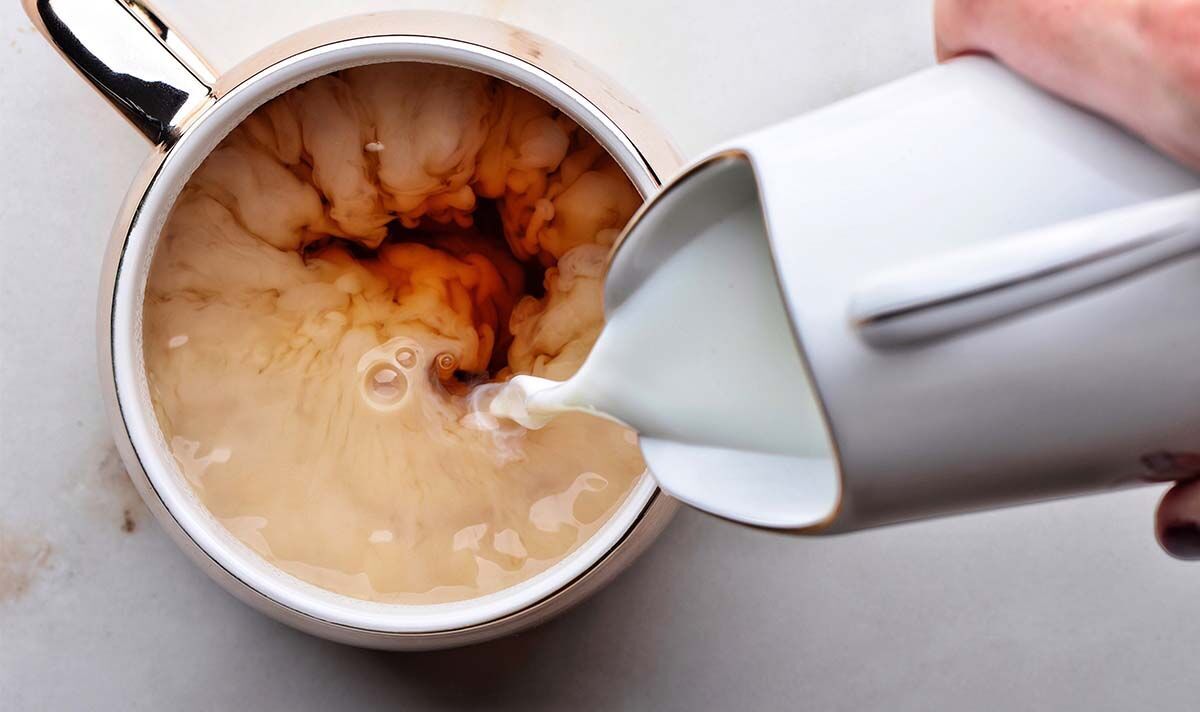
Dr Chris Steele shares diet tips on reducing blood pressure
We use your sign-up to provide content in ways you’ve consented to and to improve our understanding of you. This may include adverts from us and 3rd parties based on our understanding. You can unsubscribe at any time. More info
With the UK Tea and Infusions Association reporting that around 100 million cups of tea are drunk every day, the hot beverage is without a doubt beloved in the UK. Whether you enjoy a cuppa first thing in the morning or opt for a brew later in the day, you might want to watch the number of cups you end up drinking as tea can have side effects. What’s worse, research suggests that the beloved drink could even lead to an “acute” increase in blood pressure.
Characterised by its pleasant taste, black tea with milk is the go-to comfort drink for millions of Britons.
However, research, published in the Journal of Hypertension, tied the popular drink to “acute increases” in blood pressure within 30 minutes of enjoying a cup.
These results came as a surprise as researchers expected to see a drop in high blood pressure following the consumption instead.
The research included two trials that looked at 20 men without high blood pressure and hypertensive men and women, separately.
READ MORE: Acholic stools are ‘the most common’ sign of pancreatic cancer in ‘initial’ stages

Although tea is packed with flavonoids, known for their beneficial health effects, the warming beverage also packs caffeine.
The latter ingredient was exactly what stirred up the significant increase in blood pressure.
However, when the researchers measured the participants’ blood pressure at a 60-minute mark, the reading didn’t show any “significant” effects.
The scientists concluded: “Contrary to our initial hypothesis, tea ingestion caused larger acute increases in blood pressure than caffeine alone.
“However, any acute effects of tea on blood pressure did not translate into significant alterations in ambulatory blood pressure during regular tea consumption.”
Despite the acute increase in blood pressure found in this study, other research identified positive effects of drinking tea, with some studies even sharing it can actually lower your reading.
However, Isaac Robertson, a health expert and co-founder of TotalShape.com, warned that the risky ingredient – caffeine – can trigger a whole slew of complications, ranging from heartburn to headaches.
The expert said: “Headaches occur because of the increased blood flow around the brain. Since caffeine has vasoconstrictive properties, it narrows your blood vessels and that takes the pressure off the surrounding nerves that were sending pain signals to your brain.
READ MORE: ‘Pharyngitis’ now most common Covid symptom in the double jabbed – seen in 63% of cases

“However, if you consume excessive amounts of caffeine, it can have the opposite effect and cause headaches.
“Although tea doesn’t contain the highest concentration of caffeine compared to other caffeinated beverages, it can significantly contribute to your daily intake, especially if you drink more than one or two cups a day.”
Worryingly, caffeine can also bring about heartburn due to its ability to relax muscles between your oesophagus and stomach, “which allows the acidic content from your stomach back into the oesophagus”.
Furthermore, due to its caffeine content, it’s probably no surprise that your beloved cuppa could be also robbing you of sleep.

“Caffeine can disturb the production of melatonin, a hormone that tells your body it’s time to sleep,” Robertson added.
The good news is that all of these effects are “very individual” and cutting back on the number of cups per day could lower your risk of these problems occurring.
Robertson said: “Drinking tea has many health benefits, but, just like anything else, it should be consumed in moderation.
“For most people, drinking three to four cups a day shouldn’t cause any problems, but some may experience side effects from drinking one or two cups.
“The majority of side effects come from caffeine, so the best solution for those who are sensitive would be to switch to herbal teas, since most of them are naturally caffeine-free.”
Source: Read Full Article